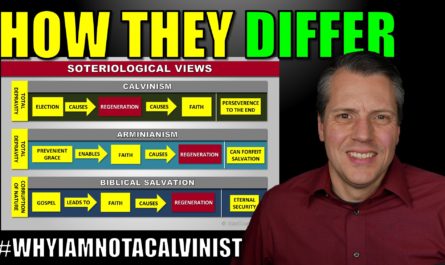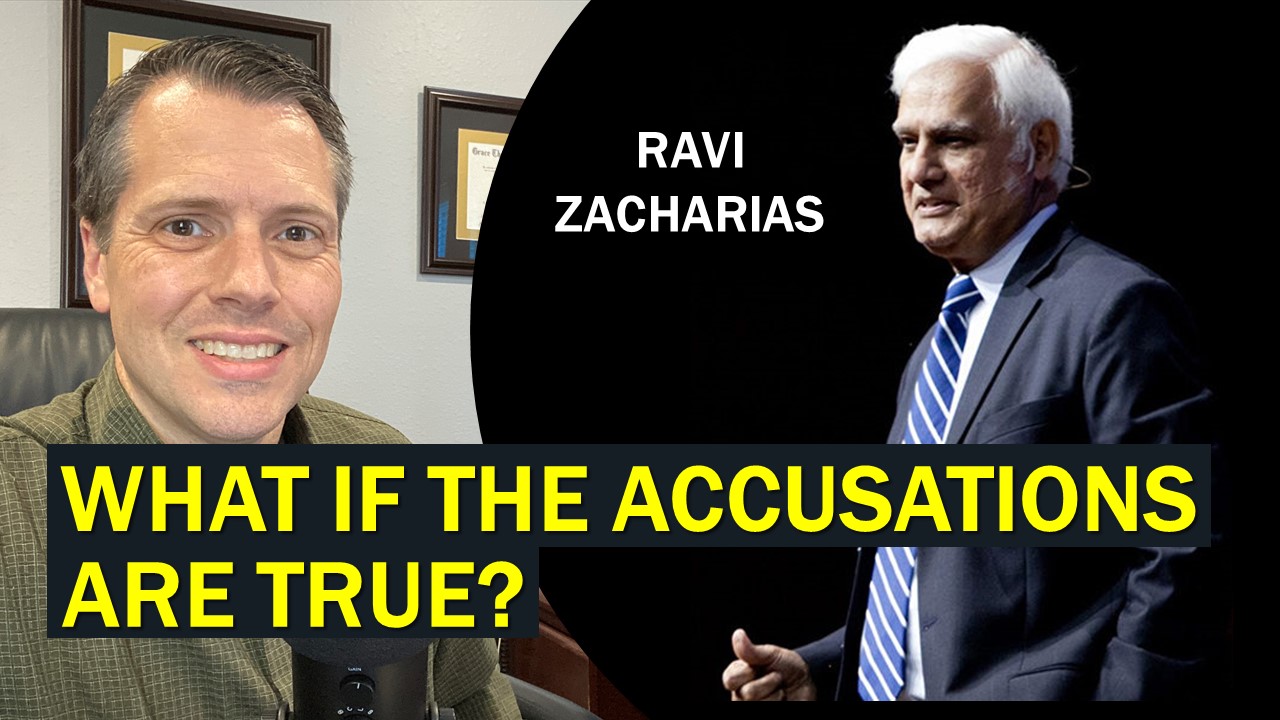When we read the Bible about salvation, we may get a little confused. In some cases, faith is required. In other cases, it seems to be works. So, which is it?
Let’s begin by looking at the faith requirement. Paul liked to stress that salvation came through faith rather than works.
…not by works of righteousness which we have done, but according to His mercy He saved us, through the washing of regeneration and renewing of the Holy Spirit, (Titus 3:5)
For by grace you have been saved through faith, and that not of yourselves; it is the gift of God, not of works, lest anyone should boast. (Ephesians 2:8-9)
When Paul and Silas were still sitting in the jail in Philippi after it had been demolished by a storm, the jailor (who had been hearing them singing and praying) came out and asked them this question:
And he brought them out and said, “Sirs, what must I do to be saved?” So they said, “Believe on the Lord Jesus Christ, and you will be saved, you and your household.” (Acts 16:30-31)
This guy thought there was something he had to do to get whatever it was that Paul and Silas had. So, what is it that I have to do? Nothing, according to Paul and Silas—just believe.
So far, so good. We cannot be saved through any work of our own. It’s all about belief, or faith.
But then James comes along and muddies the waters, throwing the soteriological world into millennia of confusion.
What does it profit, my brethren, if someone says he has faith but does not have works? Can faith save him? (James 2:14)
James seems to be putting forth a rhetorical question—can faith save you? Of course not!
So, which is it? Faith, works, or both?
As is usually the case, a careful reading of the Bible clarifies a lot of theology. So, let’s take a “careful” look at it.
Notice first that James does not say the man “has” faith, it says that he “says” he has faith. We have here someone who claims to have faith. Maybe he has it; maybe he doesn’t. This is a good point to remember: claiming to have faith is not the same as actually having faith.
Is there any way, then, to determine if someone’s faith is real? That is exactly what James was getting at. There is a way—and that is to examine a person’s works. If a man claims to have faith but cannot back it up with works, he does not actually have faith.
The big question James poses is this: “Can faith save him?” According to Paul, it can, but James seems to include a twinge of sarcasm—because without works, there really is no faith.
Of course, James does not immediately and directly answer this question. Instead, he offers an example.
If a brother or sister is naked and destitute of daily food, and one of you says to them, “Depart in peace, be warmed and filled,” but you do not give them the things which are needed for the body, what does it profit? Thus also faith by itself, if it does not have works, is dead. (James 2:15-17)
You say you have faith, but you do not help someone in need. In that case, your faith is dead. In other words, it’s not real. You don’t really have it. In a sentence, he says this: faith without action is not faith.
In our society, “faith” has become too generic of a word. We say we have “faith” if we know a few facts about the Bible and show up to church on occasion. However, if you look up the Greek word behind faith, pistis, you will see an interesting definition. It does not say “religion.” It says “persuasion” or “conviction of a truth.” In other words, faith is not an overall term for religion. It is conviction that something is true. And if we are convinced that something is true, we will act on it.
Have you ever been in a building when a fire alarm goes off? Rarely does anyone head for the exits. We usually just assume someone was using the alarm pull as a backscratcher or there was a technical malfunction. If we truly believed there was a fire, we would head out immediately. But we don’t believe it, so we don’t do anything about it (other than complain that the stupid alarm is too loud and somebody should shut it off). Action naturally follows faith.
James goes on to explain some more:
But someone will say, “You have faith, and I have works.” Show me your faith without your works, and I will show you my faith by my works. (James 2:18)
How can you show faith? Only by what you do. If there is nothing to back it up, it’s not real. James goes on…
You believe that there is one God. You do well. Even the demons believe—and tremble! (James 2:19)
Ok, so you are monotheistic. You believe in one God (both Judaism and Christianity do). Great. Even the demons do that! They know the truth about Jesus Christ! But there is a difference—they don’t have saving faith.
But do you want to know, O foolish man, that faith without works is dead? (James 2:20)
Again, if there is no action, there is no faith. Just in case we need more help with this, James gives us two examples: Abraham and Rahab. These are interesting choices. Of all the examples in the Old Testament, he picked one from either end of the spectrum—the father of the Israelites and a Gentile prostitute.
Example: Abraham
Was not Abraham our father justified by works when he offered Isaac his son on the altar? (James 2:21)
So, it was Abraham’s act of offering Isaac that justified him? Before we get too bogged down, read the next verses:
Do you see that faith was working together with his works, and by works faith was made perfect? And the Scripture was fulfilled which says, “Abraham believed God, and it was accounted to him for righteousness.” And he was called the friend of God. You see then that a man is justified by works, and not by faith only. (James 2:22-24)
That is exactly the point James is making here. Faith will necessarily produce action. Abraham believed God, and that is what made him righteous. Because he believed God’s promises concerning Isaac, he was willing to offer him as a sacrifice.
Example: Rahab
Likewise, was not Rahab the harlot also justified by works when she received the messengers and sent them out another way? (James 2:25)
Abraham we can understand, but Rahab? She was known for two things: being a harlot and having faith. A native of Jericho, she put her own life in danger by protecting the two Israelite spies when they came to check out the city. She knew something about God’s power, which caused her to do something about it.
Finally, James summarizes his thought:
For as the body without the spirit is dead, so faith without works is dead also. (James 2:26)
When the breath leaves the body, the body is dead. There has to be breath for a body to be alive and there has to be action for faith to be alive. Faith will produce works. If we truly have faith, there will be evidence in how we live.
Now that we understand the correlation between faith and works, let’s look at an example of how they work together. For this we turn to the discussion between Jesus and Nicodemus, in which Jesus famously said
And as Moses lifted up the serpent in the wilderness, even so must the Son of Man be lifted up, that whoever believes in Him should not perish but have eternal life. (John 3:14-15)
You can read the full account of the “serpent in the wilderness” Numbers 21. The Israelites had been wandering around the desert as punishment for their lack of faith in God. They had refused to enter the Promised Land and claim it as their home. For forty years they wandered, doing little but complaining.
Finally, God had enough. He got sick of their whining and sent poisonous snakes into the camp. Whenever a person was bitten by one of these snakes, he would become sick and often die. The people pleaded with Moses to do something about this plague, so he brought the request to God.
Rather than simply making the snakes disappear, God allowed them to stay. However, He arranged for a way for the people to be healed when bitten. He commanded Moses to make an image of a brass snake and attach it to a pole. When someone was bitten by a snake, all he had to do was look at the pole and he would be healed.
Now, imagine that you have been bitten by a snake. You are lying in your tent, writhing in pain on your uncomfortable cot, drifting in and out of consciousness. Suddenly your best friend bursts through the doorway and announces that Moses has set up an image of a snake, and you really need to look at it.
A snake, of course, is the last thing you want to look at, so you roll over and turn your back on your friend. However, he persists in trying to persuade you that if you will only believe him and go take a look at the snake, you will be healed.
Slowly, you ease yourself over the side of the bed and hobble toward the doorway, if for no other reason than to get the friend off your back. He helps you down the dusty path, and around the corner toward where Moses had his tent set up. Suddenly, you see it. It’s a pole with the hideous likeness of a snake on it. However, you don’t look for long because as soon as you set your eyes on it, your pain disappears. You are a new man.
Here is the question–what healed you? Was it the act of looking at the “snake on a stick” or was it the faith it took to make you get up to do it?
This illustration shows the relationship between faith and works. In our desire to stress that salvation cannot come by works, we tend to leave them out of the equation altogether. However, faith and works co-exist. To put it another way, if faith, then works.
If you truly had faith that looking at the snake would heal you, you would not have stayed on your bed. If you questioned it, but still got up, that would be an act of faith. Faith produces an action of obedience.
That is exactly what James was getting at when he said that “faith without works is dead.” You can’t tell me you have faith in something if you won’t do anything about it it.
When my youngest son, Braden, was little, he loved the water (shouting “lahder!” every time he saw some). However, he was afraid to get into it. Even with his life jacket fastened securely on him, he would cling desperately to me.Faith would be just letting go and allowing the life jacket to do its job, but he wouldn’t do it.
That is how faith in God works. We may not understand everything about Him. We may not even understand how He can exist. However, He has told us that we can trust Him, and has proved Himself faithful time and time again. Salvation comes about when we let go of our own abilities and just trust Him.
And if we truly trust Him, works will follow.



